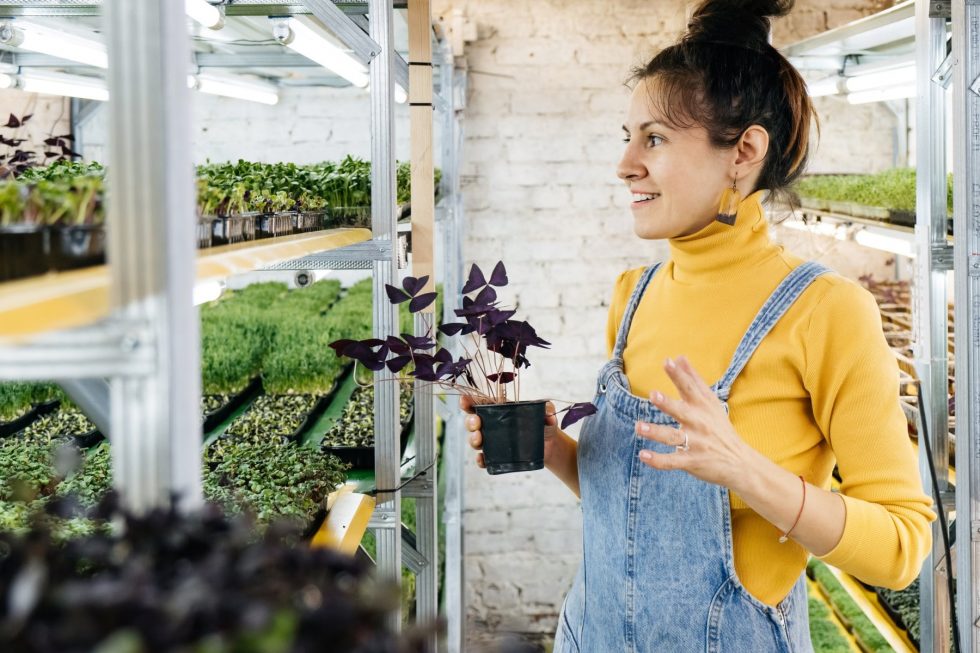
Human activities have caused severe damage to the planet, jeopardizing ecosystems’ stability and resource availability. Although the agricultural industry bears a great responsibility for this, organic farming can be the key to a more environmentally friendly sector.
Climate change is reshaping the way things are done in several industries. A clear example of this is regenerative agriculture since it implements a sustainable approach in an essential sector for humankind.
In this regard, this activity faces a series of innovations that are changing how processes are developed, improving results, and optimizing resources, such as water and soil.
Searching for sustainable agriculture
The United Nations World Water Development Report 2021, prepared by Unesco, indicated that 69% of water withdrawals are used for agricultural processes, accounting for the industry’s high water consumption.
Therefore, optimizing this and other resources, it’s crucial to improve sustainable indicators and adopt a more sustainable approach in the agricultural industry. There are a variety of paradigms worth considering:
1. Extractive agriculture
The traditional extractive agricultural industry undermines the systems’ production capacity, increasing dependence on non-agricultural inputs and technological advances to maintain crop yields.
This has led to the indebtedness of small farmers and the large companies’ consolidation. It is estimated that small farms make up 72% of the productive ecosystem and only occupy 8% of available land, while large companies -which represent 1%- occupy 65% of land used for crops.
Changing this process is vital to maximize resources and enhance the industry’s sustainability.
2. Conservation agriculture
Desertification and drought may be the next pandemic, says the United Nations (UN). While the latter is a natural phenomenon, desertification is mainly caused by human activity, affecting 40% of the world’s population.
Given such consequences, conservation agriculture aims to protect the ecological system and reduce the negative impact of the agricultural industry on the environment, keeping a good standard of productivity without overexploiting natural resources.
Increasing sustainability in the industry requires improvements in element efficiency, such as water and soil, maximizing productivity, and respecting the harmony of the environment.
3. Positive agriculture
This initiative aims to rebuild the natural surrounding damaged by human activity by efficient use of natural resources, improving soil health and the water cycle, and, consequently, increasing biodiversity.
Through this model, it is possible to supply a community and ensure the economic well-being of farmers while fully achieving the industry’s sustainability.
4. Regenerative agriculture
The traditional approach to agriculture considers farms as elements isolated from the environment, forgetting the negative outcome of practices such as excessive use of water or chemical substances in the cultivation process.
Regenerative agriculture requires industry professionals to understand the value of the earth’s flora and fauna, and its unique diversity, ensuring that the balance that gives each area its richness is preserved.
As this alternative is oriented toward decision-making and planning, it needs a cultural transformation of people. This change will lead to new philosophies, principles, and practices, for the shift must be holistic.
Why is soil so important?
Healthy soil is fundamental for a thriving ecosystem since biodiversity depends on it and, by extension, the possibility of growing food for our consumption and animals.
However, for years the industry’s agricultural practices have wreaked havoc on soil health, with environmental costs reaching US$ 3 trillion per year, showing the sector’s impact on climate change.
Nevertheless, today some solutions seek to mitigate the footprint of agricultural processes, such as CO₂ sequestration, which ensures healthier soil by preventing carbon from being released into the atmosphere.
It can create richer soils for cultivation with carbon farming, leading to more resistant and nutrient-rich fruits and plants. Moreover, the adoption of this practice translates into better soil quality due to more extraordinary biodiversity, avoiding products like fertilizers and pesticides.
In addition, carbon farming benefits water retention in the soil, which is a significant advantage for coping with droughts or boosting crop yields in dry areas.
What Agtech solutions can we find in the industry to reduce agriculture’s impact?
Nowadays, there are several solutions from the Agtech industry to diminish the adverse effects of the agricultural sector and achieve greener agriculture:
Digital integration
Technology today allows growers to have better control and management of agricultural production. An example of this is Instacrops, a digital platform that ingrates different technologies and services.
Big Data and IoT help optimize irrigation according to weather conditions, cutting the use of water resources by up to 35%. Such is its contribution that, by 2021, Instacrops has achieved savings of more than 5.3 billion liters of water in Latin America, reducing costs and promoting sustainability in the processes.
Vertical farming
This approach is the key to increasing soil use efficiency in crops while consciously managing water consumption.
Agrourbana is the first Latin American company that adapts agriculture to vertical farms in cities. Through technology, they produce vegetables with minimum water consumption and using up to 99% less soil.
Natural coatings for fruits
Reducing food and fruit waste is crucial to decreasing the agricultural sector’s carbon footprint since around 50% of fruits and vegetables delivered each year are wasted globally.
PolyNatural’s Shel-Life® is a solution designed to reduce these numbers. It is a 100% natural emulsion to coat fruits that helps prevent dehydration, extending the product’s lifespan.
Until January 2022, Shel-Life® prevented the waste of 840 tons of food and saved 880,750 m³ of water, demonstrating its potential to promote sustainability in the agricultural industry.
Due to current environmental issues, society demands efficient agriculture in using natural resources, which is feasible by optimizing the entire production chain and employing solutions to improve sustainable indicators.
PolyNatural’s Shel-Life® is crucial to turning agriculture into a more environmentally friendly industry by reducing fruit waste. Therefore, growers can increase the profitability of their investments while enhancing the sustainability of the processes.
